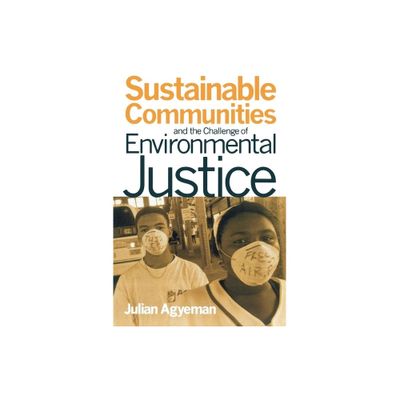Home
Ireland and Ecocriticism: Literature, History and Environmental Justice
Loading Inventory...
Barnes and Noble
Ireland and Ecocriticism: Literature, History and Environmental Justice
Current price: $61.99


Barnes and Noble
Ireland and Ecocriticism: Literature, History and Environmental Justice
Current price: $61.99
Loading Inventory...
Size: OS
*Product Information may vary - to confirm product availability, pricing, and additional information please contact Barnes and Noble
This book is the first truly interdisciplinary intervention into the burgeoning field of Irish ecological criticism. Providing original and nuanced readings of Irish cultural texts and personalities in terms of contemporary ecological criticism, Flannery's readings of Irish literary fiction, poetry, travel writing, non-fiction, and essay writing are ground-breaking in their depth and scope. Explorations of figures and texts from Irish cultural and political history, including John McGahern, Derek Mahon, Roger Casement, and Tim Robinson, among many others, enable and invigorate the discipline of Irish cultural studies, and international ecocriticism on the whole. This book addresses the need to impress the urgency of lateral ecological awareness and responsibility among Irish cultural and political commentators; to highlight continuities and disparities between Irish ecological thought, writing, and praxis, and those of differential international writers, critics, and activists; and to establish both the singularity and contiguity of Irish ecological criticism to the wider international field of ecological criticism. With the introduction of concepts such as ecocosmopolitanism, "deep" history, ethics of proximity, Gaia Theory, urban ecology, and postcolonial environmentalism to Irish cultural studies, it
takes Irish cultural studies in bracing new directions. Flannery furnishes working examples of the necessary interdisciplinarity of ecological criticism, and impresses the relevance of the Irish context to the broader debates within international ecological criticism. Crucially, the volume imports ecological critical paradigms into the field of Irish studies, and demonstrates the value of such conceptual dialogue for the future of Irish cultural and political criticism. This pioneering intervention exhibits the complexity of different Irish cultural and historical responses to ecological exploitation, degradation, and social justice.
takes Irish cultural studies in bracing new directions. Flannery furnishes working examples of the necessary interdisciplinarity of ecological criticism, and impresses the relevance of the Irish context to the broader debates within international ecological criticism. Crucially, the volume imports ecological critical paradigms into the field of Irish studies, and demonstrates the value of such conceptual dialogue for the future of Irish cultural and political criticism. This pioneering intervention exhibits the complexity of different Irish cultural and historical responses to ecological exploitation, degradation, and social justice.


















